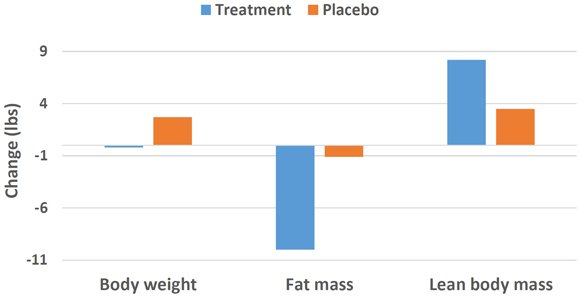Health
How Does Forskolin Help With Weight Loss

Losing weight has always been a popular topic, but it can be extremely difficult to succeed in weight loss. Scientific studies show that 15% of people succeed by using conventional weight loss methods.
Those who fail to lose their weight are more likely to seek solutions like dietary supplements. One dietary supplement is called forskolin, which is a natural plant compound that gained popularity in the U.S. for its weight loss properties.
What is Forskolin?
Forskolin is an active compound, labdane diterpene, found in the roots of the Indian Coleus. Forskolin has been used for many centuries to treat various conditions and diseases (1). Forskolin is sold on the market as a weight loss supplement, which weight loss properties we will discuss further in this article.
Does Forskolin help with Weight Loss?
Many scientific studies have investigated the impact of forskolin on fat metabolism, but not all scientific studies were conducted on humans. The conducted scientific studies show that forskolin stimulates the release of stored fat from fat cells.
The supplement on its own, is not enough to promote weight loss. The supplement needs to be accompanied by a calorie deficit, just like conventional diets. For weight loss to occur, by using this supplement, the energy expenditure must exceed the energy intake.
However, some scientific studies have provided a lot of promising results, in human weight loss. It appearsthat forskolin can promote fat-loss while preserving the muscle mass. This effect does not cause weight loss. We will discuss more details about the conducted study in the next paragraph.
The Forskolin Weight Loss Experiment for Men
Only 2 small scientific studies have investigated the impact of forskolin on weight loss in humans. The research sample includes 30 overweight men (Godard, 2005). The overweight men were randomly assigned to two groups:
- Forskolin group: 15 men were supplemented with 250mg, twice a day for 12 weeks, of Coleus forskohlii extract (10% forskolin).
- Placebo group: 15 men took the same amount of placebo pills.
Men who took forskolin lost significantly more fat than the placebo group (2).
However, the total body weight did not change (see diagram below).

The change of the body composition during the study
In addition, another effect was a significant increase in testosterone in the forskolin group. The increase in testosterone can stimulate the release of fat from fat cells, which explains some fat loss in the observations.
When the testosterone levels rise, the increase in muscle mass can also rise. And, it is well known that muscles weight more than fat, due to higher density, which can also explain there was barely any weight loss in the forskolin group (see diagram above).
The Forskolin Weight Loss Experiment for Women
In another study, 23 overweight women received the same dose as the men group in the previous study, of Coleus forskohlii extract for 12 weeks.
The results in this scientific study show that the forskolin supplementation didn’t have any kind of significant effects on fat loss. However, the results suggest that forskolin may protect against weight gain (Henderson, 2005).
Conclusion
Based on the current studies we can clearly say that forskolin does not cause any weight loss. In conclusion of the studies we can find 2 implications: 1) forskolin may improve body composition in men and 2) prevent weight gain in women.
Further on, we can suggest from the studies that the supplement caused significant fat loss, but body weight remained the same. At this point, the scientific sample and evidence is too limited to make a grounded statements for a whole population. There is more future research needed, with a larger sample size, to find more significant results.
-

 Tech11 years ago
Tech11 years agoCreating An e-Commerce Website
-

 Tech11 years ago
Tech11 years agoDesign Template Guidelines For Mobile Apps
-

 Business6 years ago
Business6 years agoWhat Is AdsSupply? A Comprehensive Review
-

 Business10 years ago
Business10 years agoThe Key Types Of Brochure Printing Services
-

 Tech8 years ago
Tech8 years agoWhen To Send Your Bulk Messages?
-

 Tech5 years ago
Tech5 years ago5 Link Building Strategies You Can Apply For Local SEO
-

 Law5 years ago
Law5 years agoHow Can A Divorce Lawyer Help You Get Through Divorce?
-

 Home Improvement6 years ago
Home Improvement6 years agoHоw tо Kеер Antѕ Out оf Yоur Kitсhеn































